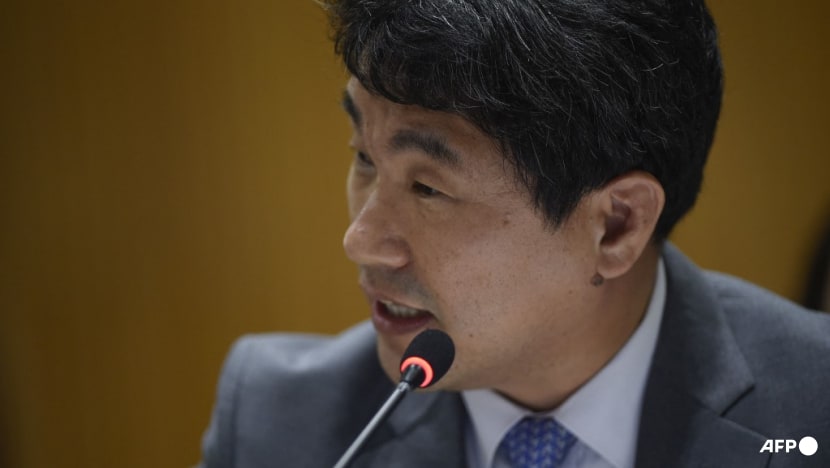South Korea's acting president says to ensure stability until election

Acting president Ju-Ho Lee speaks on Sep 18, 2016 in New York City. (File photo: AFP/Getty Images North America/Riccardo Savi)
SEOUL: South Korea's third acting president in five months Lee Ju-ho said on Friday (May 2) he will ensure stable government ahead of a Jun 3 presidential election, following the quick-fire resignations of the prime minister and finance minister.
Hours earlier, Education Minister Lee took over as acting leader, thrusting him into the job of shepherding Asia's fourth-largest economy through the political turmoil triggered by a martial law attempt last year by ousted President Yoon Suk Yeol and the impact of sweeping US tariffs.
Lee pledged to work closely with the cabinet and opposition-led parliament which impeached Yoon in December, and to try to stabilise the government.
"I will try my best to ensure government functions are managed stably," he told reporters.
Lee later chaired an unscheduled National Security Council meeting and called for a posture of "unwavering readiness" in case of possible aggression from neighbouring North Korea.
Financial markets were preparing for further uncertainty in early trading as authorities vowed to quell any immediate fallout from the resignations of key policymakers, pledging to minimise the impact and maintain round-the-clock monitoring.
The South Korean won weakened as much as 0.8 per cent to 1,438.5 per US dollar in early trade, its biggest loss since Mar 19, while the benchmark KOSPI stock index slipped 0.3 per cent.
Prime Minister Han Duck-soo, who had been serving as acting president before stepping down a day earlier, announced his entry into the presidential race on Friday, hoping to leverage his higher profile after a spell in the leadership role.
Finance Minister Choi Sang-mok had been set to assume the position of acting president by law before a snap election on Jun 3 to elect a new leader, but he abruptly quit just before midnight on Thursday.
Choi, who has played a leading role in the response to US tariffs, apologised in a statement for not being able to continue his work while the country faces severe economic conditions at home and abroad.
The finance minister resigned just before midnight on Thursday as parliament was voting to impeach him over his earlier refusal as acting president to appoint a Constitutional Court judge.
The resignation raises questions about the oversight of South Korea's discussions with Washington on looming new tariffs.
South Korea's central bank cautioned that US tariffs added to the uncertainty over the path of the inflation rate, which it said was expected to remain around 2 per cent for the time being.
The Asian country, which had been considered one of the most powerful success stories of democratic resilience, has faced months of political turmoil since Yoon's ill-fated attempt to declare martial law late last year.
Adding to the precarity, a court ruling on Thursday cast doubt on the liberal election frontrunner Lee Jae-myung's eligibility to run for the presidency.
The Supreme Court overturned an earlier ruling that had cleared Lee, saying he had violated election law by publicly making "false statements" during his 2022 presidential bid.
It sent the case back to the appeals court and ordered it to issue a new sentence, which could bar Lee from running for office for up to five years.
In addition, the candidacy of Han Duck-soo, the former prime minister, has the potential to impact the conservative People Power Party's chance of retaining the presidency, potentially splitting a field that polls show is already far behind Lee.
A Gallup Korea survey on Apr 25 showed that Lee Jae-myung was the favourite to win next month's election with 38 per cent, while former head of the conservative People Power Party (PPP) Han Dong-hoon had 8 per cent and Han Duck-soo was on 6 per cent.















